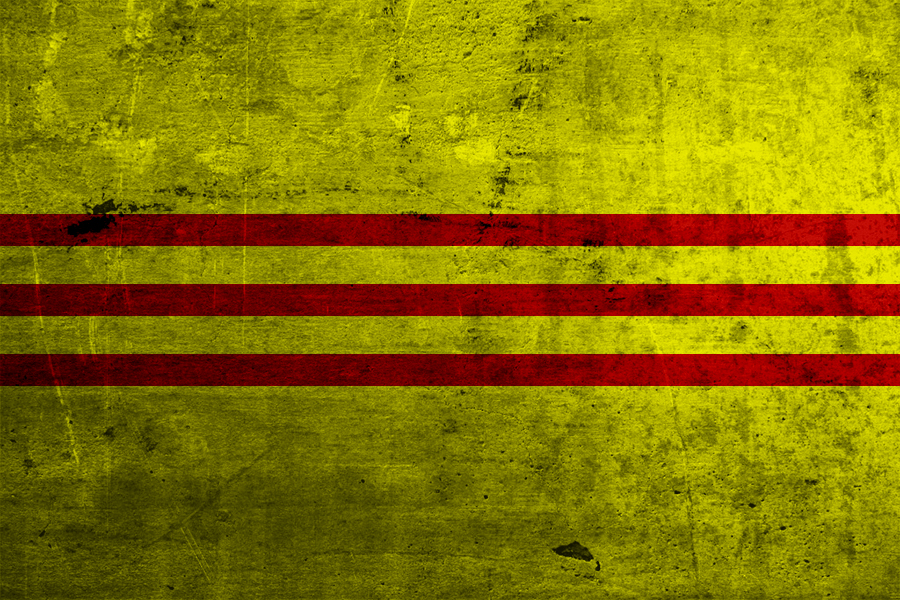And so, we went south. We boarded a plane and landed just outside of Hue, the old capital of Vietnam. In many ways, Hue turned out to be forgettable city. Its urban center non-existent. Many historical landmarks barely recognizable as anything more than piles of old rocks. But Hue does have a story to tell. American soldiers once held this city against a furious North Vietnamese (NVA) attack. In hopes to protect their positions, both American and NVA forces ordered artillery to fall indiscriminately over the entire city, leaving nothing but rubble and corpses afterwards.
As we walked the streets of Hue, this was still very evident. Green grass gives way to piles of rubble and stone… women dance in long blue dresses in front of the partially destroyed ancient temples, pirouetting around the dark recent past of Hue, the massacres of epic proportions from which the defending Americans eventually had to flee.
Most tourists do not come to Hue to relive these memories. They come because it has a vibrant history as the romantic capital of Vietnam’s past. It is built along an ancient river and the Vietnamese have revered it for hundreds of years before the recent war made it notorious. Unfortunately one who arrives now arrives as a witness to destruction… A place undergoing a rebirth which is not complete. Hue is not a beautiful city, although one can imagine a time in which it was…. It is a testament to war. A war which has left visible scars which Americans should see…. Not because it is our fault, but because our fathers lived through it. Our uncles, our brothers fought here for a cause they probably did not understand, but died for nonetheless. Hue is a memory of this tragic past.
On our final day, we got into a car which drove south. The driver was friendly, and told us stories of the Vietnam countryside as we moved. He was proud of his country, except when we were pulled over at what seemed like a pointless checkpoint. The car slowed, and the driver got out at an officer’s demand. This went on for several minutes while my wife and I waited confused in back of the car. Finally the driver came back.
“Thank god this happened in the south” he said, “In the north, we may have been in real trouble!”
I wasn’t sure was he was implying, but I smiled and said something stupid like “Oh, I know!” and we got on our way.
He told us that when cops see you have tourists in your car, you get pulled over and have to pay money. Simple as that. “It’s a tax.” He said. I felt bad, was confused, but decided I’d tip him nicely. Maybe it was a tactic of his. And if it was, it worked.
On the way in, I’d seen that the shop across the street sold Vietnamese wine for only a few bucks. Impressed, I slipped across as we waited and got their finest bottle in anticipation of having something special with my wife as we lounged on the hammocks in the courtyard later that evening. Ill bet you didn’t even know that Vietnam made wine… neither did I! That evening I learned why. My wife refused to drink it after half of one glass, and after mine I decided I’d rather stick with French wine.
But the beaches which are a 20 minute ride away are a piece of heaven. We spent two days in the city before going to the beach. The room was spartan. It had a bed, a hammock in a small yard in front and a sandy path which led to the South China Sea. But there was a peace which one rarely finds anywhere in the world. After a day of tiger beers and beach time, we walked to dinner down the beach to an expat bar with nice drinks and Europeans lounging on couches looking out to the sea.
We had a nice meal, and just before we paid, I felt my pockets and realized I’d left my wallet in the room. Oh no. The only solution was to go get it…. Maybe a mile back down the beach. I told my wife I’d go and let her wait there. The road though town was quicker than the beach so I made my way back on the pavement in the night. The first few houses were clearly those of the expats, large and with porches overlooking the sea; laughter and conversation echoed in the hot evening air, lit by their spirits and their floodlights pointing towards the beach… It was a life which I admit that I began to envy as I walked. To live a live of luxury in a foreign and beautiful place at such a reasonable price! (These Vietnamese palatial houses on the beach went for about the price of a mid-size two bedroom home outside of Denver. Yes. I checked.) But then by the hundreds: small cinder block squares with large open rectangles as front doors and thatched palm roofs; whole families lying down on uncarpeted cement floors with no furniture watching a tiny TV. House after house I passed this after the few opulent expat mansions by the bar. This was the real Hoi An. Not the shops, the fancy hotels – the restaurants which served Phó in many different varieties. This was Vietnam. Where the per capita GDP is less than $2,000. But finally, I arrived at the hotel.
I opened the safe, retrieved my credit card, and decided I’d head back to the bar via the beach in the dark instead of witnessing all that again. Because after all… What could I do?



One Response